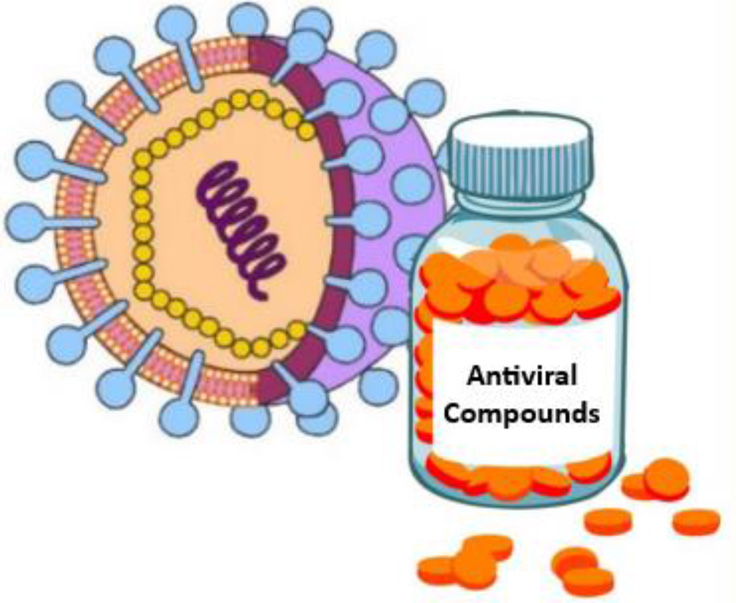Research @ VIPLab
Why Herpesviruses?
These viruses are successful human pathogens in terms of global distribution, transmissibility, immunomodulation, life-long persistence in the host, and pathogenesis.
Herpesviruses have been chaperoning humans for millions of years, and over this time, they evolved multiple elaborate strategies to trick the host immune system, avoiding recognition and subsequent clearance. Generally, they do not cause major harm to immunocompetent host, but in immunocompromised individuals, the viral infection leads to dramatic consequences.
The human cytomegalovirus genetic variability in congenital infections
Human cytomegalovirus (HCMV) is the leading cause of congenital infections resulting in severe morbidity and mortality among newborns worldwide. The virus is highly polymorphic, particularly in genes contributing to immune modulation; however, mechanisms and virulence factors contributing to HCMV pathogenesis and particular clinical outcomes remain unclear. This project will characterize a cohort of HCMV clinical strains isolated from newborns with congenital or postnatal HCMV infection for viral fitness, genetic polymorphisms, immunological, clinical, and epidemiological features. We strongly believe that unveiling the genetic make-up of the virus, alongside its growth properties in vitro, may help to predict the clinical outcome of infection.

Targeting PAD-mediated citrullination to treat congenital HCMV infection
Human cytomegalovirus (HCMV) is the most frequent cause of congenital malformations in developed countries, resulting in neurodevelopmental delay, fetal or neonatal death, and most frequently sensorineural hearing loss. Although several nucleoside analogues have been employed successfully against HCMV infection, their use in children is hampered by the occurrence of serious neutropenia and thrombocytopenia. Thus, there is an urgent and unmet clinical need for less-toxic but highly effective antiviral drugs that could be safely administered against HCMV during pregnancy or in the neonatal period. In an effort to characterize post-translational modifications (PTMs) during HCMV infection, we came across an unprecedented mechanism of HCMV-induced citrullination of viral and cellular proteins (i.e. conversion of arginine into citrulline). Accordingly, we found that inhibition of calcium-dependent protein arginine deiminase 2 (PAD2) ablates HCMV mediated citrullination and virus growth. Thus, here we propose to test our central hypothesis that PAD2-mediated citrullination is a novel mechanism of host viral adaptation in HCMV-infected cells. For this purpose, we will correlate studies on expression and function with characterization of mechanism of action.

Discovery of new antiviral drugs
Viral infections are a major cause of disease, mortality and economic losses worldwide. Antiviral therapy is an essential instrument to control virus infections.
At present, VIPLab is focused to counteract herpetic infections, especially against human cytomegalovirus (HCMV). There are limited options to treat HCMV disease as there is no effective vaccine and the few licensed anti-HCMV drugs available have many shortcomings. The elective antiviral strategy for herpetic infections is based on the use of nucleoside analogues. However, nucleoside analogues may exhibit significant toxicity to the host. Moreover, by interfering with the viral DNA synthesis, the nucleoside analogues frequently induce the appearance of resistance mutations to the genes coding for the viral enzymes used for DNA synthesis, thus selecting the appearance of drug-resistance forms.
For these reasons, new therapeutics are required and the research of the VIPLab is oriented to the identification of new compounds to inhibit HCMV replication by modulating virus-host interactions.

HCMV and Innate Immune response
The innate immune response is the first and essential line of defense against Human Cytomegalovirus (HCMV). The importance of early interactions between the virus and the host to decide the future outcome of the infected individual explains how HCMV primary infection is normally asymptomatic in immunocompetent people, while it can lead to severe even lethal consequences in immunocompromised individuals. In regards, our lab is interested in comprehending the numerous strategies of evasion evolved by HCMV and on the other side the specific and finely tuned antiviral response mounted by the host.

From Gariano, Dell’Oste et al. Plos Pathogens 2012

